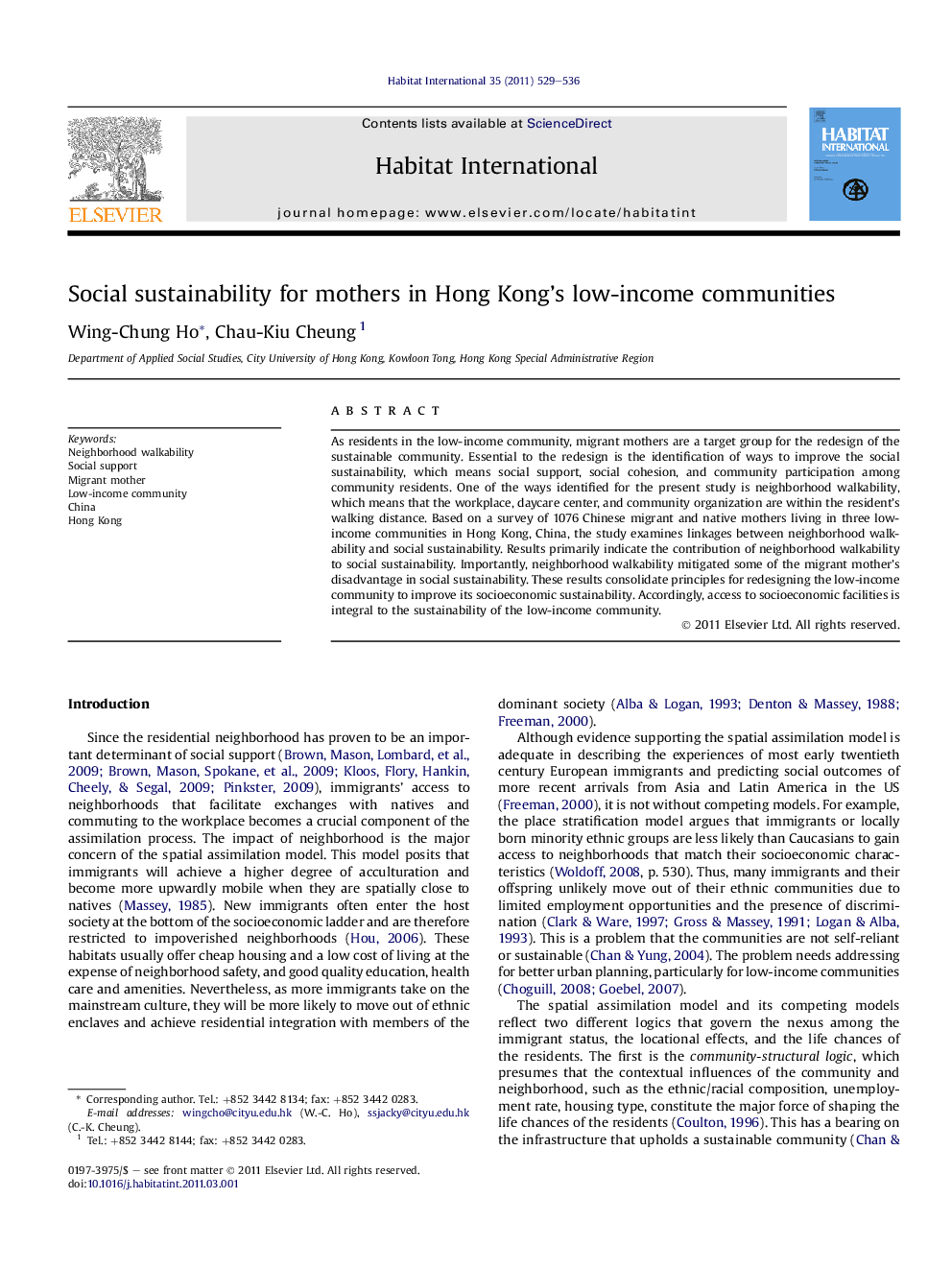| Article ID | Journal | Published Year | Pages | File Type |
|---|---|---|---|---|
| 1048073 | Habitat International | 2011 | 8 Pages |
As residents in the low-income community, migrant mothers are a target group for the redesign of the sustainable community. Essential to the redesign is the identification of ways to improve the social sustainability, which means social support, social cohesion, and community participation among community residents. One of the ways identified for the present study is neighborhood walkability, which means that the workplace, daycare center, and community organization are within the resident’s walking distance. Based on a survey of 1076 Chinese migrant and native mothers living in three low-income communities in Hong Kong, China, the study examines linkages between neighborhood walkability and social sustainability. Results primarily indicate the contribution of neighborhood walkability to social sustainability. Importantly, neighborhood walkability mitigated some of the migrant mother’s disadvantage in social sustainability. These results consolidate principles for redesigning the low-income community to improve its socioeconomic sustainability. Accordingly, access to socioeconomic facilities is integral to the sustainability of the low-income community.
► Mothers living in low-income communities are in need of social sustainability. ► Their social sustainability of benefited from walkability. ► Walkability referred to the proximity of amenities to residence.
